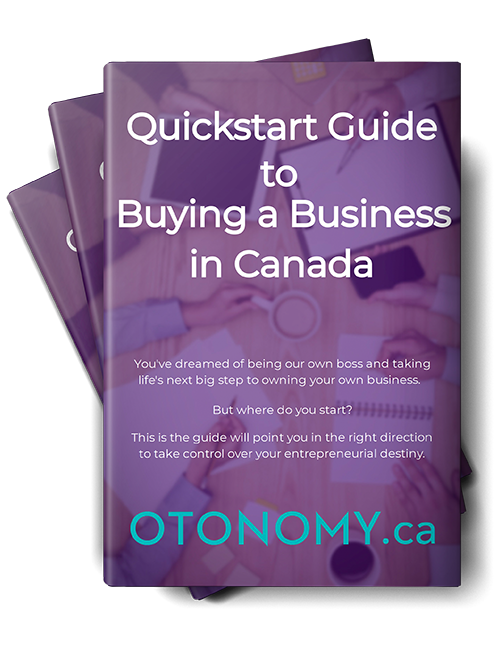When it comes to selling or buying a business, there are people you are going to want in your corner that can steer you in the right direction. Some of these professions are a must, while others are on a case-by case-basis. Due diligence is a must and you should interview multiple advisors prior to deciding who to hire. Never sign on with the first person you speak with and come prepared with questions.
The two most important members of your team will be your lawyer and accountant. If you own your own business, you may already have them on retainer. When it comes to selling your business, make sure they are qualified to help you as they may choose to refer you to colleagues who are better equipped to help you. Both roles are equally important to both the buyer and seller in this relationship.
Lawyers
The primary reason to have a lawyer in your corner, whether you are looking to sell your business or buy one, is to ensure the negotiation and final deal is properly structured, protects your interests and legally binding. They will advise you of your liabilities and any continued obligations. A qualified acquisition lawyer can provide assistance and guide you through the due diligence process including business valuation and exit strategy. There are a number of contracts, documents, filings at both provincial and federal level, plus various transactions needed in the successful purchase or sale of any business. In some cases, a qualified lawyer may be involved in the negotiation of the sale as well if requested. Note that using a lawyer to help with the negotiation of a sale will likely cost more. You can discuss with your lawyer up front what their level of involvement should be and they will provide guidance accordingly. A qualified lawyer with applicable experience should be considered a critical expert for both buyers and sellers.
Accountants
Most existing companies will have access to a qualified accountant to assist with ongoing operations. Keeping accounts and books up to date, free of tax violations and possible complications is crucial to a successful business especially at time of sale. An accountant should have knowledge of existing assets for the business, as well as an in-depth knowledge of the overall finances. They will be able to explain clearly current and past financial data, analyze reports and statements, and raise any concerns to the owner or potential buyer. An accountant should provide detailed documents on the company structure and provide guidance on any relevant tax situations. When it comes to determining company value, both actual and perceived, an experienced accountant should be able to consult on the asking price of the business.
Lawyers and accountants should work hand in hand to ensure all due diligence has been performed reducing risks for both buyers and sellers.
Financial Planners/Advisors
It is always better to plan the sale of your business sooner than later. Successful business sale planning typically starts years in advance as it gives the existing owner time to properly map out both the transition and their own personal future. Having a skilled financial planner in your list of advisors can provide insight on where to invest, save, or distribute the money from the sale of your business. They should also have a good understanding of your retirement strategy and long term financial goals. There are tax repercussions with the sale of a business that a financial planner can also help you navigate.
Insurance Specialists
When buying or selling a business, you should be aware of potential insurance challenges. Depending on the type of sale, new owners maybe responsible for past liabilities. Buyers should also be aware of existing insurance policies covering property and assets. Some policies may or may not be transferable, so it is important to know your options and level of responsibility. It is also important that both the buyer and seller work closely with their respective lawyers, accountants, and other advisors, as well as their respective insurance brokers, to understand the varying liability implications.
Business Brokers or Intermediaries
Traditionally, brokers are more often hired by a seller than a buyer. It is possible however for buyers to hire a broker when they are having trouble finding the right business to buy.
Like any profession, there are good, quality brokers that will bring value to the sale of your business and there are some that are less effective costing you valuable time and no sale to show for it. Obviously, there is no guarantee that every business will sell but if you want the benefits of a qualified broker, you will want to make sure you interview many and be wary of those who over-promise and under-deliver while tying you into long term contracts.
A business broker is similar in many ways to a real estate agent. They will help prepare the business for sale and will give their insight on how to attract buyers. Most brokers will offer business valuation services and provide guidance on preparing your books and records. Brokers can also keep the conversation with potential buyers moving forward while acting as an intermediary during difficult situations.
Most importantly, as Richard Parker writes in Forbes, “It requires a sustained effort to sell a business. Within the business brokerage industry, the common statistic used is that an average small business for sale will sell in around nine months. All the while you have to keep running the business, because if it does not sell, you do not want a scenario where you have taken your eye off the ball of running the business for close to a year and devoted time to a sale that never materializes“.
Brokers are commission-based and often will force a termed listing agreement (12 months is common but sometimes negotiable). The average commission is ~10% of the sale, so the cost is not inconsequential. This is why it is important that as a seller, you make sure you find an effective broker, with a proven track record, that will bring something to the table and help drive to a successful sale. Even if you find your own buyer, the business broker may be entitled to the agreed commission within the agreed-upon term window (12 to 24 months) depending on the agreement signed.
As Parker writes, “Ultimately, it is the business owner themselves who really gets the business sold. After all, there is nobody better suited to tell the story of the business to prospective buyers than the owner. However, a good intermediary will allow you to remain focused on running the daily operations of your business while it is on the market“.
Business Valuator
As the title suggests, this is an expert on how to place a value on your business. A realistic valuation is critical to the success of a sale. It is common for sellers to over or undervalue their business which can lead to selling for too little or not selling at all. There are many online sites that will help give you some guidance on determining a valuation, but unless you are skilled in this area, you will want input from your advisory committee. Most brokers will offer this service which why a trusted, qualified broker, should you choose to use one, is essential. Getting a second or third opinion on the value of your company will help set realistic expectations.
Strategy Advisors
There are agencies who offer strategic advisor services for buyers and sellers of businesses. Whether you avail yourself of such an agency depends on how confident you are when it comes to selling your business. At first glance, there appears to be overlap between a strategy advisor and a business broker. In reality, there is an overlap between all the professions outlined here. As the BDC writes, “… a trusted business advisor who will help you get an overall understanding [of] your business, and help you to clarify what you want to achieve with the sale and how to get you there”.
A strategy advisor is ideal for coming up with just that, a strategy. When building such a plan, they work on helping you understand why you are selling and what you want to get out of the sale. They can walk you through the entire process including the roles of the professionals mentioned here. They can become subject matter experts in your industry and provide guidance accordingly. They however do not sell your business for you, yet they can help you build the map to get there.
Commercial Real Estate Agents
If property is involved in the sale of your business, consulting a commercial realtor can be very important if you choose not to use a broker. You may want to structure your sale where real estate and the actual business are separated. Be aware that the process for selling property is very different than selling a business. As written in The Balance Small Business, “Most real estate professionals shouldn’t be engaged in the brokerage of operating business enterprises unless they have the experience and expertise to do so”. So again, like with all professions mentioned, do you due diligence and interview multiple people before selecting anyone.
Conclusion
It goes without saying that selling or buying an existing business is a major step in one’s life. For a successful outcome that is to everyone’s advantage, finding key people to guide you and offer advice may be required. Speak to multiple representatives from each group before deciding on any individual/firm. Communication is key for the best possible outcome, thus it is most important to keep all of your advisors informed and working together as a team on your behalf.




